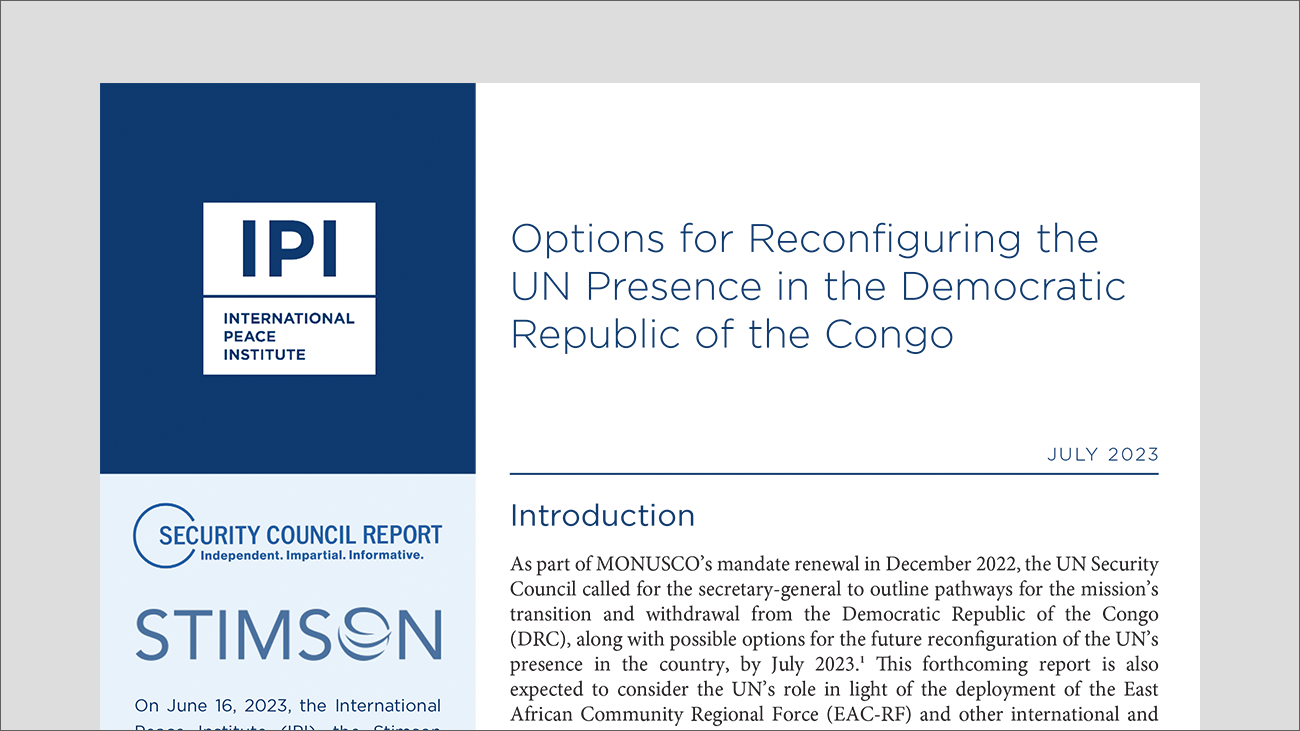
As part of MONUSCO’s mandate renewal in December 2022, the UN Security Council called for the secretary-general to outline pathways for the mission’s transition and withdrawal from the Democratic Republic of the Congo (DRC), along with possible options for the future reconfiguration of the UN’s presence in the country, by July 2023. This past year, the rise of the M23 and other non-state armed groups in eastern DRC has led to the deployment of regional and bilateral forces, while rising anti-MONUSCO sentiment has further restricted the UN’s operating space. Following widespread and lethal civilian demonstrations against the mission’s perceived ineffectiveness throughout 2022, the government of the DRC notified the UN Security Council of its intention to reassess the agreed timetable for the mission’s departure, citing the deep displeasure of the Congolese people.
In this context, the International Peace Institute (IPI), Security Council Report, and the Stimson Center cohosted a roundtable on June 16, 2023, to discuss the UN’s presence in the DRC in the short and longer term. Convened under the Chatham House rule of non-attribution, this workshop brought together member states, UN officials, independent experts, and civil society stakeholders. The discussion sought to inform the UN Secretariat’s planning and discussions among UN member states on the prioritization and sequencing of MONUSCO’s transition and prompt creative thinking on the UN’s civilian, police, and military reconfiguration in the country, taking into account the deployment of regional and bilateral forces.
Participants raised several key considerations for MONUSCO’s transition and the UN’s reconfiguration:
- Prioritize a gradual, responsible, and conditions-based transition that addresses benchmarks 1–4 and 15 in the joint DRC-UN transition plan, emphasizing the protection of civilians as a priority task;
- Develop tailored transition strategies for each of the eastern provinces in collaboration with the UN country team (UNCT), the host government, and local civil society that reflect the unique conflict drivers and dynamics in each region;
- Call upon member states in the region to uphold their political commitment to the Luanda and Nairobi peace processes, ensuring the DRC’s and the region’s long-term stability;
- Urge member states to provide innovative, robust funding that enables the transfer of programmatic work from the mission to the UNCT, where appropriate;
- Continue to support the delivery of humanitarian aid and DDR processes where possible;
- Provide technical expertise in the lead-up to national elections slated for December 2023; and
- Adopt a “right fit,” tailored approach for the UN’s longer-term reconfiguration that embraces creative thinking, goes beyond a military approach, and addresses the drivers of conflict.







